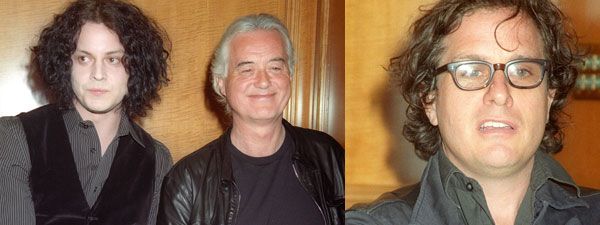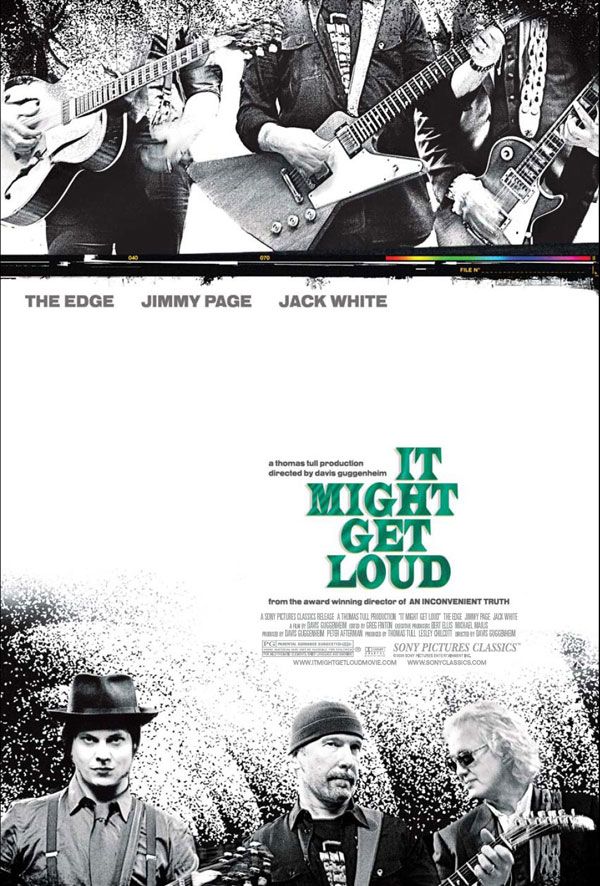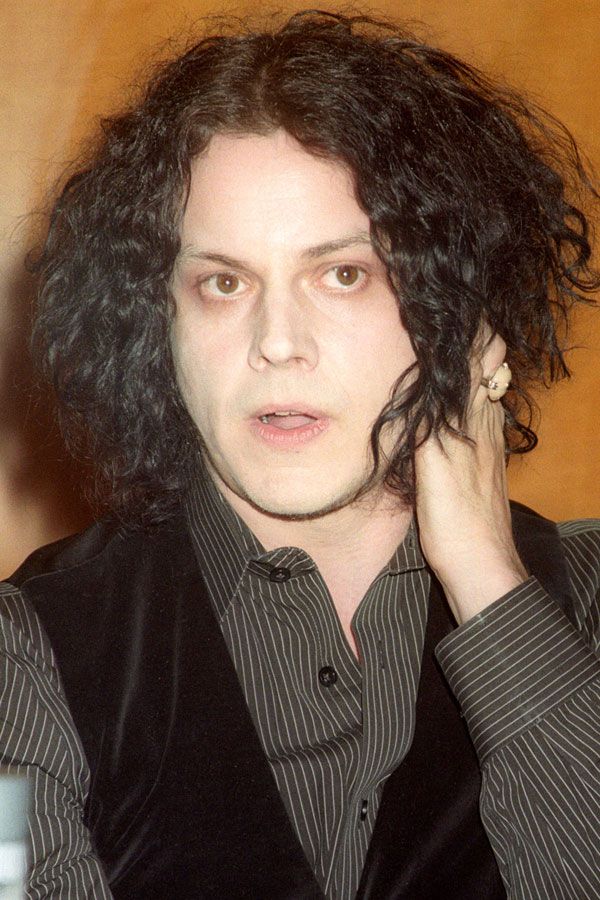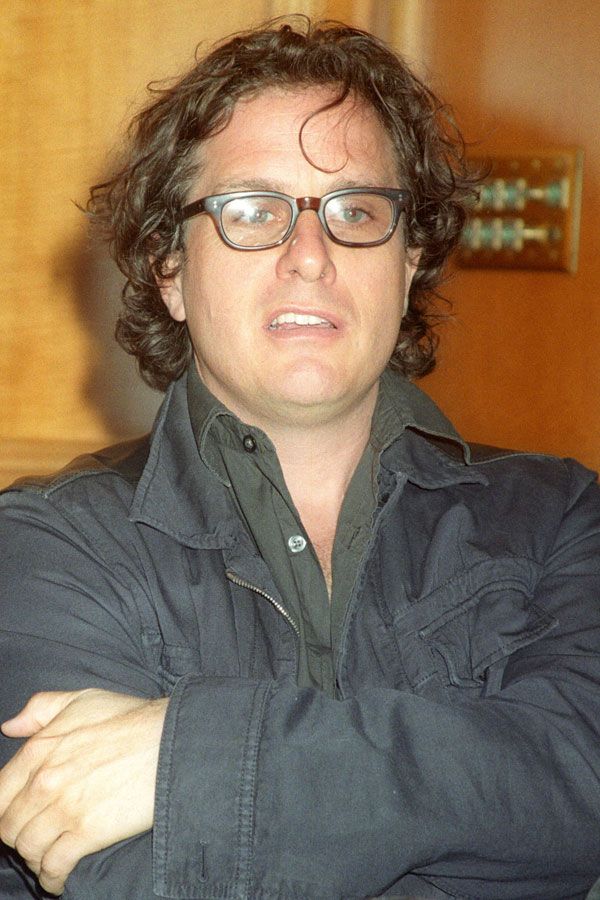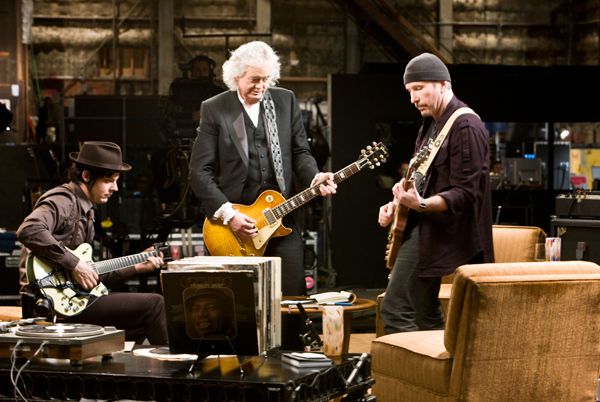Telling the personal stories, in their own words, of three generations of electric guitar virtuosos -- Jimmy Page (Led Zeppelin), The Edge (U2) and Jack White (The White Stripes) -- It Might Get Loud revolves around a day when the three musicians sat down together in an empty soundstage to share their stories, teach each other songs and play. Revealing how each developed his unique sound and style of playing guitars, the documentary follows the musicians to influential locations and provokes rare discussions as to how and why they write and play.
Exciting and intriguing not just for musicians, but also for fans of music or anyone who's ever dreamed of being a rock star, It Might Get Loud gives rare insight into why music resonates, moves and inspires us. At the press day for this new documentary, Jimmy Page and Jack White joined director Davis Guggenheim to talk about their own personal, intimate experiences with the instrument that they have become famous for. Here's what they had to say:
Question: Davis, how did you bring these three musicians together?
Davis: (Producer) Thomas Tull had the idea. We were friends, and he said, "I wanna make a film about the electric guitar." After talking with (producer) Lesley Chilcott, who I make documentaries with, we realized there's a lot of music documentaries and movies that felt lacking to us. They were about everything but what the artistic experience was. They were about car wrecks and overdoses, or they're a film filled with platitudes about how so-and-so changed music forever.
We thought, "Why not make this film much, much more personal and get underneath the personalities of three really interesting people?" So, we weren't trying to be the Top 10 list. We weren't trying to be encyclopedic. We weren't even trying to cover every generation, although it feels that way. We were just trying to get underneath the characters of people who express themselves in a way which is kind of a mystery. When you hear an electric guitar, there's no words, so there's nothing to associate, nothing to quantify, nothing you can put on Wikipedia that someone can look up. We said, "What if we made a movie about something that no one has ever described before, in the proper way?"
Why these three musicians?
Guggenheim: You could make another film tomorrow with three people that inspire you. There are many, many people who can play guitars note-perfect, and they're virtuosos, and you may love them, but I really wanted people who were searchers. (Producers) Thomas, Lesley and I wanted people who really inspired us, and whose stories said something more than just, "Here's a hit."
Jimmy, you're such a music legend. Had you previously known Jack White or The Edge, before doing this? What did you learn from them?
Page: I'd met Jack before. We'd done an interview and, obviously, I was really aware of his work. But, what was so fascinating about this is that we are all really self-taught guitarists. We all have real interesting characteristics. It's not like we're part of an orchestra, where everyone has been taught the same way and there are varied areas of interpretation. With this, it's really strong with the character of what we've lived, in our music, so there was a lot to receive from the characters and how it manifests through their playing. I do really believe that all guitarists have a different character that comes through, that's a strong character, the stronger the person is. There was a lot to experience, and it was a really good experience doing this. I really enjoyed it.
What are you guys listening to these days? What's on your playlists?
White: I've been recording a lot lately. I just opened this institution in Nashville that's this vinyl record system, so I've been producing records and listening to a lot of artists. I've been listening to all this music. I can only listen to what I'm working on, at the time. I can't listen to anything else because I don't want to copy it.
Page: I've been listening to a lot of rockabilly again. I go through periods, where I just listen to things. I just concentrated on blues, and now I've gone back to listening to rockabilly.
Do you think music still has the same potential to be a life-changing experience, as it had in the 60's and 70's?
Page: Music can always be a life-changing experience, for musicians and fans, or at least life-affecting, but it depends on to what degree. There's music that can affect people in their lives, and they will always relate to the point that they heard it and experienced it, either if you're playing it or you're receptive, as an audience.
Have you heard any recent music that's moved you?
Page: Certainly, yeah. There's always music that moves me. It doesn't necessarily mean that it's within the parenthesis of rock or blues, or whatever. It's usually far more reaching than that. It can be in many different genres. The best part of it is that, in 20 years, you can hear something that is a total surprise to you, or you wouldn't have conceived would have been there, musically, before. That can really move you and take your attention.
Jack, one of the themes of the movie is overcoming obstacles. How big was your obstacle of growing up in a Muslim Mexican neighborhood, and how much did it influence you, especially since you just released a single in Spanish?
White: That's right, yeah. You absorb so much from whatever your environment is, as an artist, and you learn to take from it what can help you create. Many people in the neighborhood liked hip-hop and house music, and I couldn't play that. You can't perform that on guitar or drums, which was what I was playing, at the time. But, I got so much from mariachi bands that were constantly playing in the neighborhood, and even Tejano music or Banda music that was playing, all around. I absorbed all those melodies and I love those rhythms. Eventually, we finally got to use it on the last White Stripes record, in "Conquest."
Jimmy, what were the biggest influences in your life, that shaped your musical career?
Page: For me, it was hearing the rock 'n roll artists that were coming out of the 50's, and the fact that what was driving them was just the sheer excitement of the music. They were really on to something, and they knew it. What they were doing out of Memphis must have spread like wildfire. Elvis Presley was turning everybody on to that. He was taking from the blues and Little Richard, and all the rest of it. This whole thing was just going.
That whole excitement and urgency of a movement like that just took me with it. So, it was an overall thing for me. It wasn't just one person. Although there are shining lights through it, it was really just the overall movement, which came from the blues. Nevertheless, it's something that captured a generation. Plus, they tried to take it out, or at least they certainly did in Britain.
Can you talk about your relationship with Sonny Boy Williamson? Did that come before or after The Yardbirds thing?
Page: The one that was done live with The Yardbirds hadn't come out. It was our manager who called me. I was a studio musician, at the time, and Sonny Boy was living in his flat. Somebody told me once that they went to the house and they heard Sonny Boy plucking a live chicken. I don't know how true that was. That didn't happen when I was there. Sonny Boy and myself rehearsed these neighbors in the manager's flat and, by the time we got into the studio a couple days later, Sonny Boy had forgotten all of the arrangements of what we were going to do. It was cool. Good music comes out of that.
Jack, in the film, you mentioned that your favorite song is "Grinnin' In Your Face" by Son House, and you've covered "Death Letter." What was it about that song that made you want to cover it and put it on an album?
White: Someone had played "Death Letter" for me, when I was about 18 or 19. I had already heard "John the Revelator," and I was in love with that. And then, I heard "Grinnin' In Your Face," and that was the end of it for me. I just couldn't believe it. By the time the Stripes started recording, I wanted to sing "Grinnin' In Your Face," but it was too special to me. I didn't want to insult it, and I thought, "I can't do it any justice, trying to record it." So, we picked "Death Letter," just off-the-cuff. We recorded that song in my living room. The door was open and I was looking at Meg, while we were recording. When I finished the song, Meg had this scary look on her face and I was like, "What?" And, there was a drunk man standing behind me, who had wondered in the house. He was standing there in the hall, and it took me about a half-hour to get him to leave. Always lock the door when you're recording, I guess.
You said wanting to learn everyone's secrets. What did you learn from the other musicians?
White: Some of them, I can't tell you. They're just for me, and I would never tell them, unless a publishing house made the right offer, one day. But, some of the things are obvious in the film and you can actually see them. I like the three of us learning to play "The Weight," at the end of the film, even us just going over the chords of the song. It's not any of our songs, but just to know that these things have a genesis, and you don't just wake up in the morning and know how to play every song, or know how to write a song like that. All those little moments come from that. We're all coming from similar spots, when this music is generated. After that, all you can do is learn from the techniques and production styles afterwards. That just becomes gravy on top.
Jack and Jimmy, what are your feelings on the Guitar Hero video game franchise, which commodifies the creative experience for an entire generation?
White: I've had a lot of conversations about that, over the last couple of years, and I gave up trying to understand it. I do know it's depressing to have a label come and tell you that this is how kids are learning about music and experiencing music, and that that's the only outlet now. You have to put it in a video game to get it in front of them. That's a little sad. But, other than that, I don't really know. I don't like to tell people what format they can get things in, or say, "I'm only going to release this on vinyl and nothing else. You have to come to my world." I don't like to say that to people either. But, I do think there's a loss of romance.
Page: Obviously, there have been overtures made to Led Zeppelin, but if you start with the first track on the first album, "Good Times Bad Times," and you think of the drum part that John Bonham did there, how many drummers in the world can actually play that, let alone dabble on a Christmas morning. There could be a lot of alcohol consumed over Christmas, and you still aren't going to get it.
You took a different approach in the movie, in that you're talking to your 9-year-old self. What made you decide to take that approach?
White: Ideas fly around when you're talking about making a film, and this was extremely incredible because Davis gave us so much leeway into what we were going to do, which is why I got involved, in the first place. If he had sent this script over and said, "It's going to be this, this, this and this, and that's how we're doing it," I don't think it would have been as interesting or creative for any of the people involved. Part of the film was about childhood, and I just wanted to try to take a different look at it and teach myself how to play guitar. It would have been easy to show a childhood photo, but harder to try to get somewhere with that idea, so we took the harder route.
How would you approach teaching a child now? How would you help instill that true inspiration for music?
White: Probably the best thing to do is to take them to see live music and actually, physically put them in a position where they can't get away.
Jimmy and Jack, in the film, all three of you started out on inexpensive guitars. If you were giving advice to people who were starting out playing guitar, how important is choosing the instrument? How much difference does it make, to get a top-line expensive guitar, or starting with what you can afford?
White: I think starting with whatever you can afford is the best thing to do. Starting with a top-of-the-line guitar won't facilitate anything. It will be less of a struggle and, especially someone who's young, should have a little bit of a struggle because they'll find their own relationship with the instrument. And, all the kinks that are in the bent neck, or the out-of-tune string, or the nut that's broken, they need to have. It has to become their own.
Page: I agree with that because you'll see if you've got a passion to want to play the instrument, and that is a good initiation. From my experience, once I got a guitar that was relatively user-friendly, but not super-duper easy, I really came on as a guitarist, at that point. It helped. It was a super-expensive guitar either, but something needs to steer you a bit, if you're playing an instrument that is really hard.
Jack, as viewers, we learned about the electric guitar through your personal stories. What did it feel like to reveal things on film that were very intimate to you?
White: It's not easy. The fact that it wasn't really scripted made it a lot easier to do it. I don't know if it's always a smart move, for an artist, to give everything away. There's a temptation to do that, nowadays, because there's so much more media to give it away to. At times, you just make a decision that it's important to talk about certain things. Davis handed me a Son House record, when we were filming there. We didn't talk about doing that, necessarily, but I listened to it and talked about it. I could have said, "No, that's too close to me. Let's not put it in the film, if you don't mind." But, it felt right to me.
Who would you like to collaborate with that you've never worked with before?
White: I get asked that once in awhile. George Jones would be somebody I'd like to work with. I'd like to see what's kicking around his head, nowadays.
Page: There are a number of people. I can't give you an answer right now. But, maybe I should just write them all down, put them in a hat and then just pick one.
Davis, you're a curator of this treasure that's a story, but it's also about music. How difficult was it to make sure the sound was just right?
Guggenheim: We had one of the best mixers in the business, Skip Lievsay on the Warner Bros. lot, because Thomas had a great connection there, and we did it very, very carefully. We wanted Jimmy, Jack and Edge to be totally comfortable with how their music sounded. It did feel like a privilege, but also an awesome responsibility. There are many, many scenes with music that are not in this movie, that are beautiful, and the choice not to include them was really difficult.
How involved were you in the editing process of the film?
Guggenheim: Oh, my God, very. It's an essential part of the movie. We did it a very different way. We started with just these sit-down interviews with Jack, Jimmy and Edge, with no cameras. We didn't roll a frame of film, and we had long, long discussions. Then, we brought those home and immediately edited just sound. And then, we said, "Okay, now I know, when I go to Nashville, this is what I want to shoot. When I go to London, this is what I want to shoot." Jimmy would tell me where to go, in his story, and same with Jack.
It was very, very organic. But then, you'd come home with all of this incredible footage, and we'd build a very long narrative of just Jimmy and a very long narrative of just Jack and The Edge, so it was more than a year in the editing room. And then, when they were very close to being done, that's when we started putting the stories together. Documentaries are made in the editing room, really. That's where the magic happens.
Jack and Jimmy, both of you have discussed doing solo albums. What can we expect, musically, from those albums, and would you want to guest on each other's albums?
White: (Joking) I think Jimmy needs to practice a little more, before something like that happens.
Do you think today's audience is more interested in the personality of the musician or the musicality of the performer?
White: Lines are getting a little bit blurred. People are famous for being famous, in this decade. You have to make a choice. There are distractions, all around. There's so much media now, for a young kid to battle against, to get to something soulful. You have to make a decision, on your own, what you can take from these people, if you can dig deeper. It's nice to be able to let people dig deeper. This film is letting people dig deeper into the music, let alone the personalities. It doesn't matter what high school Jimmy or I, or The Edge, went to. But, there are things you can dig into with the music and where it comes from.
What would you like to have the audience take away from this documentary?
White: Maybe a sense of how things are made. Say a listener listens to the radio and thinks, "Okay, well you chose to write this song," or "You chose to do this or that, on purpose. You wanted to write a rock song. You wanted to write a punk song." Maybe they'll see a little bit of the idea that that's sort of an after-effect and an after-taste of what the songwriter is doing, to begin with. They're trying to get to an emotion or idea, and the by-product ends up being a rock song or a punk song or a ballad, or whatever it is.
You can see how things are attacked from the beginning, and what it ends up being. When Jimmy talks about the drum sound in "When the Levee Breaks," in that scene in the film, you can see that it wasn't like Led Zeppelin sat and wrote down on paper, "This is going to have this ferocious drum sound that everyone's going to remember for eternity, and then we'll go to the riff, and critics will love it. It will be great."


